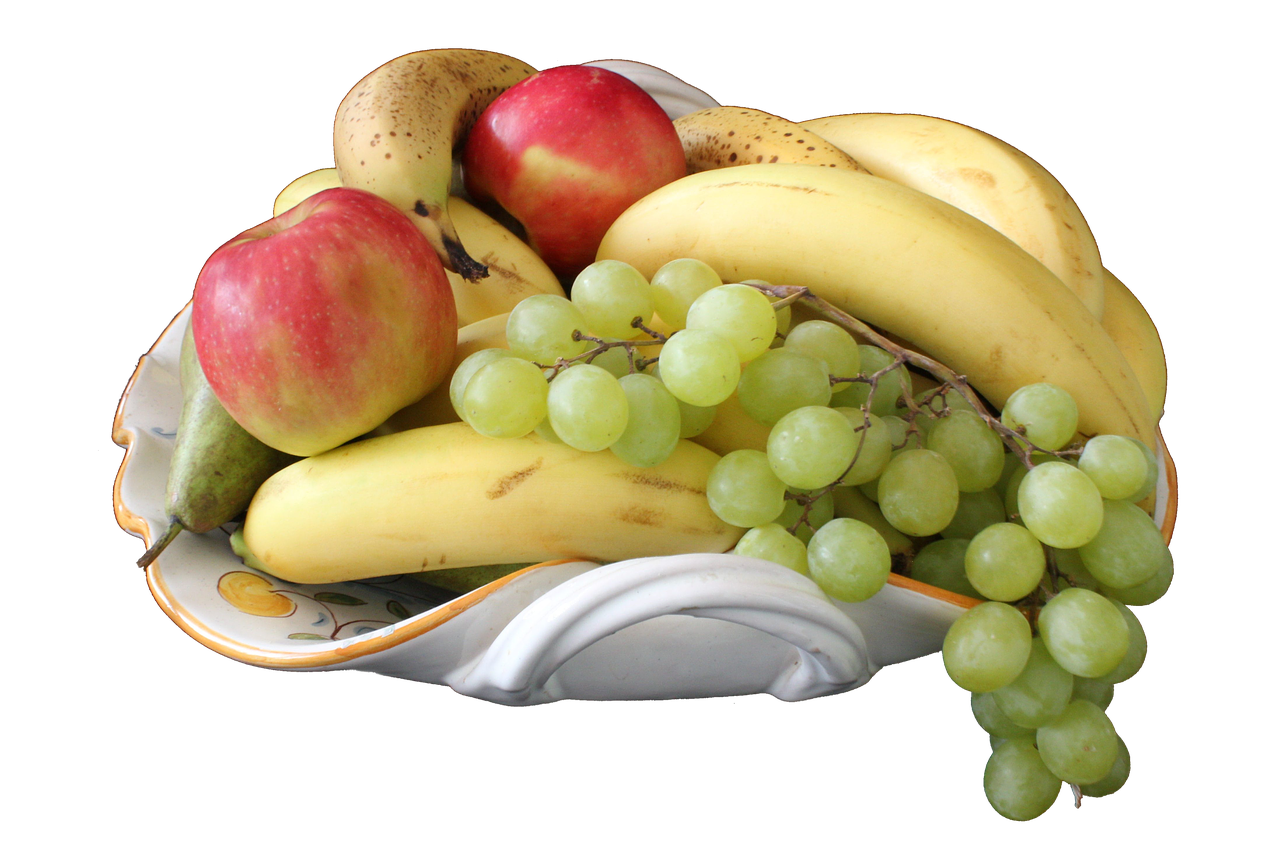Potassium is an important mineral for a great variety of biological processes. If we make an analysis of its distribution around the body we will find it is more concentrated in intracellular fluids. This turns it in the most abundant cation in cells.
Among the biological processes in which potassium participates are: to maintain cellular potentials, mainly in nerve and muscle cells, and to control, along with other molecules, the distribution of water around the body.
A lot of foods in nature are important sources of dietary potassium, being fruits and vegetables the ones that have the highest concentration in comparison with meat and cereals. Also, many food products are enriched with potassium and other minerals in order to help people to intake higher amounts of these molecules.
Dietary practices are an important factor in potassium intake. The World´s Health Organization (WHO) recommends a diary intake of 3150 mg/per day. Nevertheless, these guidelines are not strictly followed and it is usual to see irregular ingestion of potassium around the world. Western societies are characterized by a cereal rich diet and low consumption of vegetables and fruits. This brings as a consequence of potassium deficiency, usually observed in these populations. On the other hand, European countries are pretty close to the WHO´s recommendations, even when countries like Spain has a higher intake per day. Asian countries have the lowest ingestion with an average of 1800 mg/ per day.
Individuals requirements of potassium are different due to variances in sodium intake, genetics and blood pressure (BP). This has lent concerns in specialists for personalized nutrition trying to reach better-suited potassium ingestion.
Scientific studies have shown that adequate potassium intake has a positive impact on human health. It decreases blood pressure, reduces mortality due to vascular disease, slows down renal failure progression and promotes correct renal calcium excretion.
Conversely, low potassium intake promotes glucose intolerance and increases the risk of suffering arrhythmia.
Potassium intake is also involved in ageing diseases like osteoporosis. This disease is characterized by bone fragility and fracture due to loss of bone mass. Even when it has not been yet understood the way potassium contributes to reducing the risk of developing this disease, scientific research has shown it has a positive impact against it.
Because the body is not capable of producing potassium we need to take it from food. Current strategies don´t recommend the use of supplements because they are associated with hyperkalemia.
The Institute of Medicine in Washington DC recommends the Dietary Approaches to Stop Hypertension (DASH) style diet. It includes a high amount of fruits and vegetables and helps to reduce blood pressure in a shorter time.
Since fruits and vegetables are the main sources in nature, the richest ones are listed below. Also, because eating healthy doesn´t have to be boring, there is a recommended recipe for each option.
Fresh vegetables:
- Broccoli
It belongs to the family of cruciferous vegetables. Its intake has been associated with powerful anti-cancer properties. 100 g of raw broccoli provides 316 mg of potassium according to the USDA. Also, it is an important source of vitamin E, C, K and other minerals like iron and zinc. It can be consumed in many ways but, scientific studies have shown that the steaming method helps to preserve its beneficial properties.
Recommended recipe: Creamy Broccoli Soup
- Potatoes
White potato is a rich source of potassium. According to USDA 100g of it contains about 421 mg of potassium. Also, potatoes are one of the main sources of starch and vitamin C. In 2010, the American Dietary Guideline designed it as a nutrient of concern. Studies around the world have proven its importance as a staple food in many cultures. Changes in the type of cooking may induce variations in the amount of minerals intake but, once again, the steaming method has the best results.
Recommended recipe: Potato and Green Bean Salad
- Zucchini
It belongs to the Cucurbita family, the second most important horticultural family for the economy. It has also shown anti-cancer properties. Eating 100g provides 261mg of potassium in daily diet. Also, it is rich in bioactive compounds, like β-carotene and dehydroascorbic acid, that give it extraordinary nutritional and medical benefits. It can be consumed in many ways but, raw is better.
Recommended recipe: No-Bake Summer Lasagna
- Tomatoes
In general, eating any of the great variety of tomato fruits promotes a lot of medical benefits. Tomatoes are rich in compounds that help to remove free radicals from the body. Due to this, they are considered as extraordinary antioxidants. The amount of potassium varies among the different types but, in general, they provide around 237mg per 100g. Currently, scientific research has demonstrated important anti-inflammatory properties and a positive impact against noncommunicative diseases.
Recommended recipe: Tomato Pasta with Arugula and Parmesan
- Mushrooms
Mushrooms have one of the highest contributions of potassium, 318 mg in every 100g. They are considered an excellent source in cases of chronic deficiency. The family of mushrooms is extremely big, there are almost 410 species and each one provides a different amount of this mineral. Not by nothing, Romans named them “Food of gods”, they are cholesterol-free, low in calories and rich in vitamin D, riboflavin, niacin and proteins. In conclusion, they are the perfect nutritional supplement.
Recommended recipe: Roast mushroom gnocchi
Fruits, in both, whole or juice:
- Banana
This fruit has become one of the most famous global markets. Since ancient times, it was used as a treatment of various diseases. Nowadays, after a lot of scientific research, we know this fruit is an excellent source of bioactive compounds that help to combat oxidative stress. Also, it is one of the richest sources of potassium, with an average of 358 mg/100g. The last is the reason why it is included in the diet of chronic cardiac patients and in cases of chronic potassium deficiency.
Recommended recipe: Chocolate baked bananas
- Orange
Due to the number of bioactive compounds like the famous vitamin C, flavonoids and carotenoids, it is considered one of the main contributors to the prevention of cancer and heart diseases. It provides 181mg of potassium per each 100g. Doctors recommend its inclusion in the daily diet of chronic cardiovascular patients because it helps in both, to regulate blood pressure and to reduce the concentration of harmful lipids.
Recommended recipe: Olive-Topped Orange Slices
- Raisins
Raisins have excellent nutritional content. They are particularly rich in dietary fibre and health-promoting antioxidative molecules. They are the richest source of potassium from our list. They provide a total amount of 749 mg per 100g. They are mandatory in the daily diet if you want to reduce the risk of developing cardiac or diabetic diseases. It has demonstrated to have a low glucose/insulin index and to contribute to reducing the concertation of harmful lipids.
Recommended recipe: Healthy Carrot and California Raisin Salad
- Guava
Mainly cultivated in tropical and subtropical regions, this fruit provides an average of 417 mg of potassium for every 100g. It is also an important source of soluble fibre and sugars like fructose, glucose and sucrose. Many studies suggest that guava intake promotes the reduction of blood pressure with an increase of High-Density Lipoprotein Cholesterol (Usually known as good cholesterol). It can be consumed in many ways but juice and jam are the most common,
Recommended recipe: Homemade Guava Jam
- Coconut
Coconut water has arisen like one of the best natural sports drinks. Now, it is considered as a prototype of “functional food” due to its nutritional content. It is an excellent source of minerals like sodium, calcium, chloride and of utmost importance, potassium, with a contribution of 356 mg per 100 mL. Coconut water has also shown positive effects in reducing lipids concentration in serum and less fatty accumulation in peripheric tissues like heart, liver and aorta.
Recommended recipe: Green coconut water curry
CONCLUSION
Current scientific knowledge has allowed us to understand the way in how nutrients in nature help us to improve our health. We have to concern about our dietary requirements because our health is not a game. Every day nutritionists around the world are working in trying to find the perfect equilibrium for nutrients intake. It is important to routinely visit our doctor and ask by a personalized diet because, like everything, an inadequate diet could be counterproductive to our health.
Finally, it doesn´t have to be boring. We recommended a couple of recipes but the internet is full of them. Be creative, take concern and enjoy the process of being healthy.



